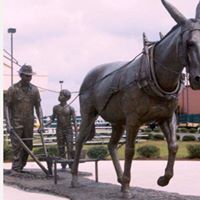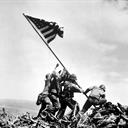During the late 19th century, a "robber baron" would best be defined as which type of individual?
During the late 19th century, a "robber baron" was best defined publicly by most people as a powerful industrialist. "Robber baron" was a derogatory metaphor of social criticism. It originally applied to certain American businessmen (industrialists) who were accused of using unscrupulous methods to get rich or expand their wealth. Cornelius Vanderbilt, for example, was said to have taken money from government-subsidized shippers, in order to not compete with them on their shipping routes. Some other men of notoriety who were in the same category as Vanderbilt were J. P. Morgan, Andrew Carnegie, Andrew W. Mellon, Henry Ford, and John D. Rockefeller.
Usage of the term "robber baron" is derived from the Raubritter (robber knights), the medieval German lords who charged nominally illegal tolls (unauthorized by the Holy Roman Emperor) on the primitive roads crossing their lands or larger tolls along the Rhine river. The tolls had to be paid without giving anything in value. They lined the pockets of the lords at the cost of the common good for everyday people living average lives.
The phrase as a metaphor appeared in February 1859, when 'The New York Times' used it to characterize the business practices of Vanderbilt. Historians say the metaphor "conjures up visions of titanic monopolists who crushed competitors, rigged markets, and corrupted the US government. In their greed and power, legend has it that the robber barons held sway over a helpless American democracy.
More Info:
en.wikipedia.org


